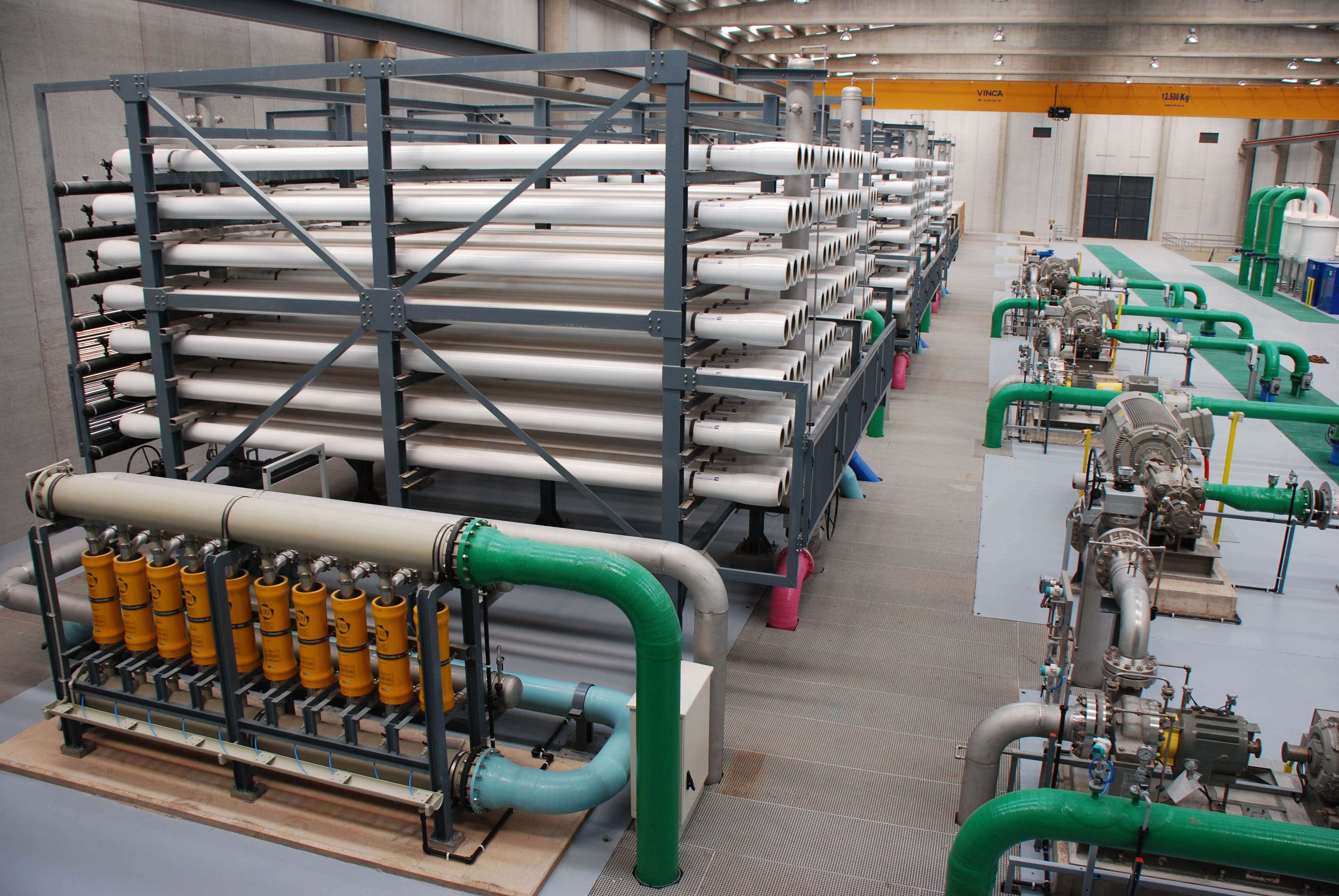MOFsDEL to develop electrochemical technologies that will improve costs and optimise current desalination processes
The company and the Technological Centre will invest more than half a million euros in research over the next three years
Madrid, 16 January 2024. Lantania Aguas and CETIM Technological Centre are working on the development of a technique that will significantly reduce production costs of desalinated water. The Lantania Group and the Technological Centre will develop disruptive, low-energy electrochemical technologies for seawater desalination in a new project called MOFsDEL.
Climate change and increasing water scarcity, coupled with the high availability of salt water, have prompted the construction of desalination plants in areas of high water stress from the Spanish Mediterranean coast to the Middle East. However, current desalination processes have high energy consumption, which hinders their economic and environmental sustainability.
For this reason, Lantania Aguas and CETIM Technological Centre will invest more than half a million euros over the next three years in the project, which will develop an innovative desalination system based on capacitive deionisation. As Cristina Martínez, head of the ECO BIO Technologies department at CETIM, explains, “the electrochemical technique to be investigated in MOFsDEL is Based on capacitive deionisation and will allow us to overcome the current limitations of electrode life, desalination capacity and efficiency, and reversibility capacity during work cycles or energy recovery.”
MOFsDEL will provide numerous solutions to current desalination plant problems. Among these, the director of Public Works of Lantania Aguas, Valentín García, highlights “the increase in production yields and the reduction of economic, energy and environmental costs.”
At a social level, the project, financed by the Ministry of Science and Innovation through the State Research Agency, will guarantee the supply of water for human, agricultural or industrial consumption in areas of high water stress, becoming a possible solution to droughts caused mainly by climate change.
Energy recovery
Thanks to the experience of Lantania Aguas in the implementation of high-capacity desalination plants around the world and the applied research on water treatment technologies carried out by CETIM Technological Centre, it will be possible to desalinate seawater efficiently while accumulating energy that will later be recovered.
During existing desalination processes with capacitive deionisation technologies, energy always accumulates, but it is usually wasted. MOFsDEL aims to recover 50% of this energy, thus improving the process’ energy efficiency and minimising waste production with respect to other types of technologies, such as membrane technologies. This will also make it possible to recover critical raw materials present in salt water.
As Cristina Martínez points out, this research “could mean a before and after in the water desalination market.” Furthermore, Valentín García says that “if everything goes well, we would like to implement this cutting-edge technology developed in Spain across the four continents in which the Lantania Group operates.”
The project “MOFsDEL: MOFs integrated into electrochemical processes for desalination and energy recovery” (Reference: CPP2022-010060) has been funded by MCIN/AEI/10.13039/501100011033 and by European Union-NextGenerationEU/PRTR.
About Lantania
Lantania Group builds large transport, water, and energy infrastructures. It develops sustainable solutions to improve quality of life and promote a cleaner and healthier world. The company currently has a work portfolio of more than 650 million euros and assets of more than 200 million. The expansion of the Guadalajara hospital, the construction of the Almudévar dam (Huesca) and the San Jorge solar plant (Castellón), together with the electrification of the first section of the high-speed railway line to Extremadura, are some of Lantania’s most important projects. The company is present in Colombia, the United States, Saudi Arabia, Algeria, Morocco, Poland, Portugal, Chile, Slovakia and Bulgaria.
